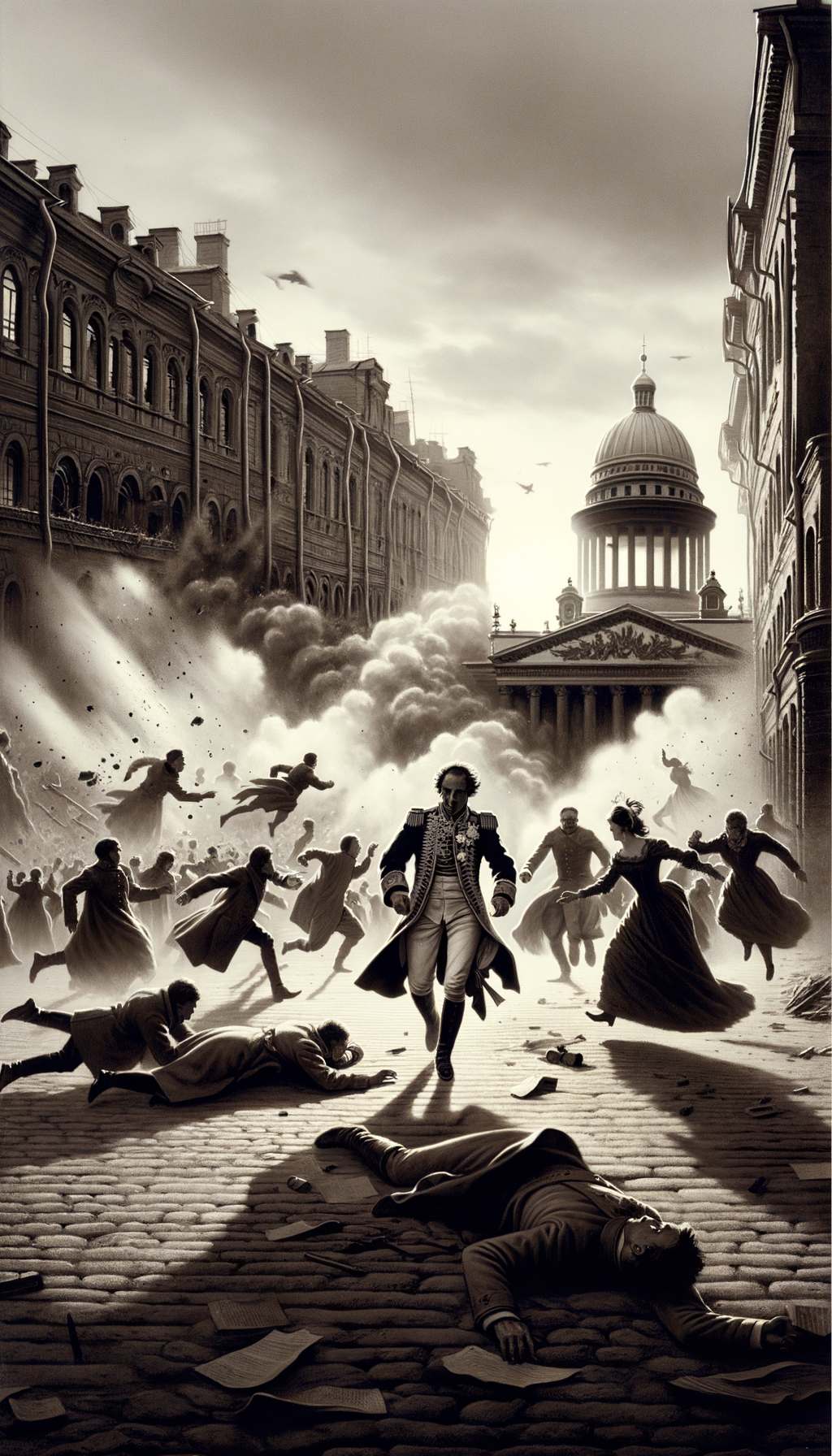Russia – The Day the Tsar Fell – March 1/13, 1881
TLDR;
- Event: Tsar Alexander II was assassinated on March 1/13, 1881, in Saint Petersburg by the revolutionary group Narodnaya Volya using two bombs along the Catherine Canal (now Griboyedov Canal).
- Context: Alexander II, known as the ‘Tsar Liberator,’ had implemented reforms including the emancipation of serfs in 1861, but faced opposition from both conservatives and radicals.
- Impact: His death led to a crackdown on revolutionary activities and a reversal of many reforms under his successor, Alexander III, contributing to increased political repression.
- Legacy: The assassination marked a turning point, setting the stage for future revolutionary movements that would lead to the fall of the Romanov dynasty and the rise of the Soviet Union.
–
Story
The streets of Saint Petersburg were bustling with the usual Sunday activity when a sudden explosion shattered the calm. Tsar Alexander II, known as the ‘Tsar Liberator’ for his reforms, lay mortally wounded, the victim of a meticulously planned assassination by the revolutionary group Narodnaya Volya.

In the years leading up to that fateful day, Alexander II had attempted to modernize Russia. He emancipated the serfs in 1861, reformed the judicial system, and expanded the railways. Yet, his efforts were met with resistance from both conservatives and radicals. The latter, frustrated by the slow pace of change, sought more drastic measures.
Narodnaya Volya, a group committed to overthrowing the autocracy, saw the Tsar as an obstacle to true reform. On March 1, 1881 (Julian calendar), or March 13, 1881 (Gregorian calendar), they executed their plan. As Alexander’s carriage passed along the Catherine Canal, now known as the Griboyedov Canal, a bomb was thrown. The Tsar, unharmed, insisted on inspecting the scene, unaware that a second assassin lay in wait. The second bomb struck, sealing his fate.
The assassination of Alexander II was a turning point. His death led to a crackdown on revolutionary activities and a halt to many of the reforms he had championed. However, some reforms, such as the emancipation of the serfs, remained in place, although the political climate became more repressive. His successor, Alexander III, took a hardline approach, reversing many of his father’s policies and setting the stage for the revolutionary fervor that would eventually engulf Russia.
The echoes of that explosion in Saint Petersburg would reverberate through Russian history, leading to the eventual fall of the Romanov dynasty and the rise of the Soviet Union.
–
| Would a different approach to reform have changed the course of Russian history? |